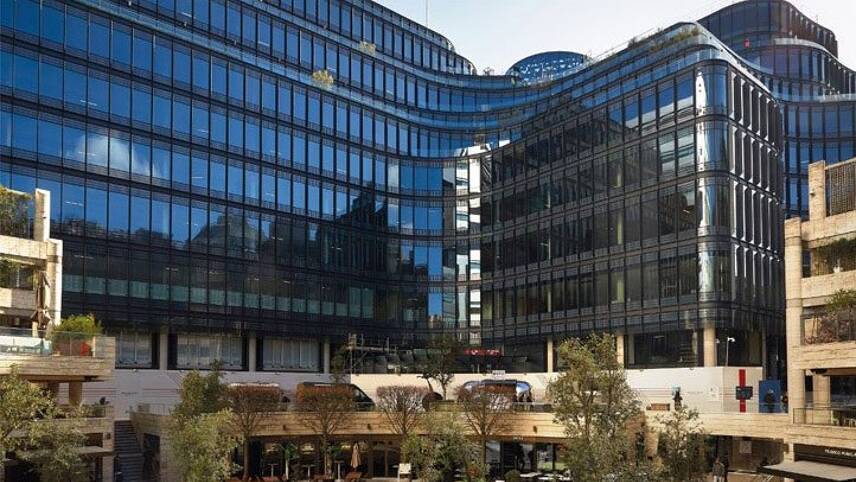Register for free and continue reading
Join our growing army of changemakers and get unlimited access to our premium content

British Land's portfolio is currently valued at around £14.8bn
Last summer, British Land has unveiled a sweeping new sustainability strategy, headlined by a 2030 net-zero target for its office and retail estate.
The strategy commits British Land to halve the net embodied carbon of all existing properties, against a 2019 baseline.
The new SBTi-approved targets commit British Land to reduce absolute scope 1 and 2 greenhouse gas emissions by 51% by 2030 against a 2020 baseline and reducing scope 3 emissions by 55% per sqm of net lettable area cover over the same time period.
British Land’s head of portfolio sustainability Matthew Webster said: “These are stretching targets, but technology can play a key role in optimising energy usage and our team is highly experienced at finding new and innovative ways to make our space more efficient. We recognise the urgent need to be ambitious in the environmental goals we set ourselves and are supported in this by our customers, partners, suppliers and people.”
Pathway to Net-Zero
In December, British Land set out a “Pathway to Net Zero Carbon” that outlined the steps the business would take to help reach net-zero.
The pathway lists carbon asset audits for its standing portfolio to identify retrofitting opportunities that improve energy efficiency, a £60 levy on embodied carbon in new developments and prioritising re-use to deliver buildings with a lower embodied carbon footprint as a measure that will help reach net-zero.
British Land’s strategy includes a clause to prioritise retrofitting over new build developments in the next ten years, in a bid to spur decarbonisation of the UK’s existing building stock – one of the nation’s largest carbon emitters and energy consumers. However, new developments delivered from April 2020 will need to be verified as net-zero embodied carbon.
British Land has self-levied a carbon price of £60 per tonne on all developments. Funding raised through this mechanism will pay for retrofitting processes, carbon offsetting and engagement with customers and tenants, so as to provide them with best-practice advice for reducing operational emissions in context. £60 is notably far higher than Europe’s average carbon price, which, as of July 2019, stood at just under €27 (£24) per tonne.
Since 2009, the firm has reduced the carbon intensity of its portfolio by 73% and the embodied carbon of its portfolio by 16%.
As well as accounting for nearly 40% of global emissions, the built environment is expected to double the global building stock by 2060 as the world’s population approaches 10 billion.
Commenting on the announcement, the UK Green Building Council’s chief executive Julie Hirigoyen said: “It’s extremely encouraging to see British Land’s latest announcements on how it will reach a 1.5°C aligned portfolio over the years ahead.
“Of particular note, is its commitment to even further cuts in absolute emissions by 2030, and also their thoughtful use of carbon levies on the embodied carbon of new developments to bring about further reductions in energy usage across the portfolio. If we are to truly tackle the climate crisis, we need more businesses to look beyond Scope 1 and 2 greenhouse gas emissions reductions and work hard to engage closely with their customers and suppliers to drive down emissions across the value chain.”
Matt Mace


Please login or Register to leave a comment.